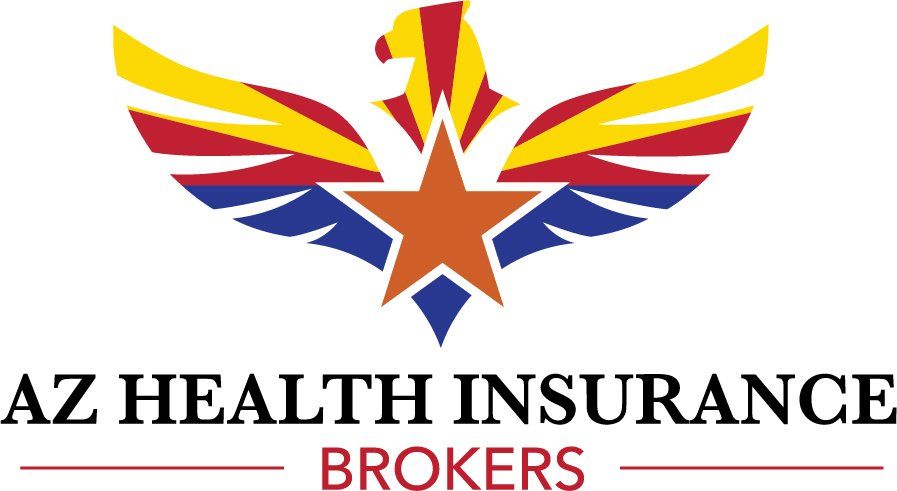What to Consider with Small Business Group Health Insurance
Small Business Group Health Insurance Guide
Offering health insurance at your small business can help you attract and retain top talent, as a 2024 survey of 2,000 U.S. adults found one in three Americans would turn down a dream job if it didn’t provide good health insurance options. Nearly three-quarters (73%) consider healthcare an important factor when they’re on the job search.
If you want to keep your top employees and attract better candidates to your small business, offering health insurance can bolster your value. This guide on small business group health insurance explains what you need to know.
Key Takeaways
- If your small business has at least two full-time employees (including yourself), you’re able to offer small business group health insurance. The one exception for small business group health insurance eligibility with two full-time employees is for small businesses that are co-owned by spouses. Health insurance for employees can be a major factor impacting recruitment and retention.
- There are many group health insurers small business owners can consider using in Arizona. These include: UnitedHealthcare, Humana, Blue Cross Blue Shield (BCBS), Cigna and Aetna (also known as Banner|Aetna in Arizona). Small business owners may also use a third-party administrator such as Angle, Trustmark or healthEZ to access group health insurance plans from providers such as Cigna and Aetna.
- In addition to carrier choice, small business owners can choose between plan types such as fully insured plans, where prices are based on employees’ ages and county, and level funding plans, which are underwritten based on employees’ past and current health.

What Is Small Business Group Health Insurance?
Small business group health insurance plans are available to any employer with more than 2 full-time staff, including for K-1 partnerships. There is an exception: a business co-owned by spouses isn’t eligible for small business group health insurance. As the employer pool grows, the ability to purchase more affordable plans increases at certain milestones.
Small group plans provide actual healthcare coverage for employees and their dependents, such as a spouse and child/children. Business owners purchase these plans, which must comply with Affordable Care Act (ACA) rules that apply to small group health plans, including:
- If you provide health insurance to your workforce, you must offer it to all eligible workers when they become eligible for health coverage. There’s a 90-day maximum waiting period, which is the period that must pass before coverage for an employee or dependent can become effective.
- Employers must provide workers with a standard “Summary of Benefits and Coverage” (SBC) form, which provides details on what their health plan costs and what it cover.
- Most plans can be offered on a pre-tax basis to both the employer and employees under Section 125.
As a small business owner, you’re in charge of choosing the plan provider and how much you’ll cover for the plan’s monthly or annual premium cost. The employee would be responsible for contributing the remaining portion of the premium. Employers can offer between three to five plans, depending on the insurance provider.
Business owners can purchase health insurance coverage at any time during the year. Your employees can join the plan during open enrollment or during a special enrollment period, such as when they first become eligible for the plan.
If you’re not able to cover premiums towards types of insurance beyond medical (such as dental insurance, vision, disability, accident, etc.), you can still offer this coverage to your employees as part of their work health insurance plan. They’ll be able to choose the amount of coverage they want and can cover the costs themselves.
How to Get Small Business Group Health Insurance
The type of group health insurance that’s available to you will depend on how many employees you have. As you grow your company and your workforce, you can also evolve your small business health insurance offerings based on employer milestones you reach and the health insurance provider you choose.
In most cases, we recommend getting fully insured or level funding insurance plans for a small business. These are defined as:
- Fully insured, also known as community rated, plans are based on age and county, not your employees’ health or pre-existing conditions.
- With level funding plans, the insurance carrier underwrites the policy based on your employees’ past and current health.
You can get small business health insurance through a broker, who can walk you through all your available options and present you with the most cost-effective ones that make sense for your business.
There are also professional employer organizations (PEOs) that can help with securing small business group health insurance. These can be pricier than working with a broker, but they can also provide other human resources (HR) functions, like administering 401(k) plans.
Types of Small Business Group Health Insurance Available
Depending on how many employees you have, here’s what’s currently available from each provider in Arizona. These offerings will differ from state to state.
- 5 enrolled employees: You can look at underwritten strategies using health applications for your employees.
- 10 enrolled employees: UnitedHealthcare and Humana will underwrite with no applications, as long as the group has prior coverage. If there’s no prior coverage, applications are required.
- 15 enrolled employees: Blue Cross Blue Shield (BCBS) will underwrite with no applications, as long as the group has prior coverage. If there’s no prior coverage, applications are required.
- 20 enrolled employees: Cigna will underwrite with no applications, as long as the group has prior coverage. If there’s no prior coverage, applications are required.
- 25 enrolled employees: Aetna will underwrite with no applications, as long as the group has prior coverage. If there’s no prior coverage, applications are required.
Once your small business exceeds 50 active full-time staff members, your group becomes an applicable large employer (ALE). The “community-rated” aspect to fully insured plans, which bases coverage on age and county, goes away. All health insurance rates will then be based on factors like utilization, health and pre-existing conditions.
In other words, all group health insurance offers for businesses with 51 or more full-time eligible staff will be underwritten. If you have 100+ enrolled employees, you’ll also need to fill out a Form 5500 for each line of coverage in excess of 100 enrolled.
Once you exceed 300 employees, partial self-funding starts to make more sense. That’s because the risk you incur is more spread out. With partial self-funding, you “rent” an insurance carrier network and pay for claims as they’re incurred. You also purchase reinsurance (also called stop-loss insurance) to cap your risk.
The opportunities for savings in this case may be larger. A business health insurance broker can help you navigate your options based on your unique circumstances.
Benefits of Offering Small Business Group Health Insurance
As a small business owner, you have several options regarding what type of health coverage you offer to employees. These include health savings accounts (HSAs), which employees contribute to for their healthcare coverage.
Another form of health coverage is a Qualified Small Employer Health Reimbursement Arrangement (QSEHRA). A QSEHRA is a type of health reimbursement arrangement (HRA) that enables small employers to provide their employees with untaxed reimbursement of specific healthcare expenses.
There are also Individual Coverage Health Reimbursement Arrangements (ICHRAs), which is an HRA where workers can buy health insurance on the individual market and get reimbursed through an employer-funded account.
When you offer group health insurance, you don’t have to offer an HSA or contribute under a QSEHRA. You’re only required to pay 50% of eligible employee coverage towards the cheapest plan.
In addition to cost savings, offering a group health insurance plan to employees can help you retain a healthier staff. Your employees may be more likely to proactively manage their health, knowing they have reliable coverage in place to take care of them. That can decrease absenteeism and improve productivity, which can boost your business results.
Interested in Group Health Insurance? Contact AZ Health Insurance Brokers
If you want to offer health insurance to your small business employees, contact AZ Health Insurance Brokers. We’ll walk you through the options you have based on the size of your workforce.
Get recommendations for the most cost-effective plan for you as a small business owner and options that can help you attract and retain your top talent. Call 602.617.4107, or email quotes@azhealthinsurancebrokers.com for information.
Small Business Insurance FAQs
How many employees do you need to offer small business group health insurance?
A small business needs at least two full-time employees in order to offer a small business group health insurance plan. This can include the business owner. The only exception is when the business is co-owned by and employs only two spouses.
Should your business offer group health insurance?
Many small business owners decide to offer group health insurance because it’s considered a business tool that can help business owners recruit top talent, decrease absenteeism, improve productivity, and retain employees. Recent surveys show the majority of job seekers won’t take a job at their dream company if it didn’t provide good health insurance options. The majority of job seekers today also use health insurance as a top factor when looking for a new job.
When is a business no longer considered a small business?
According to the Internal Revenue Service (IRS), a business becomes an “applicable large employer” (ALE) once it has at least 50 full-time workers, which includes full-time equivalent workers, on average, during the previous year. This means, the ALE will be subject to the employer information reporting provisions and employer shared responsibility provisions.
What is a fully insured plan for small businesses?
A fully insured plan for small businesses means a business pays the health insurance carrier a monthly premium in exchange for a full-coverage health care plan for their employees. Fully insured plans are also known as community rated. Prices are based solely on employees’ ages and the county in which the business operates. Employees’ pre-existing conditions or current health don’t impact the terms of these plans.
What is a level funded plan for small businesses?
A level funded health plan for small businesses is a kind of partially self-funded insurance plan. The employer pays a set cost each month that goes towards an account to cover healthcare claims, stop-loss insurance to protect the employer from excessive claims and third-party administration of the plan. Level funded health plans could be a good option for small businesses with relatively healthy workforces.











